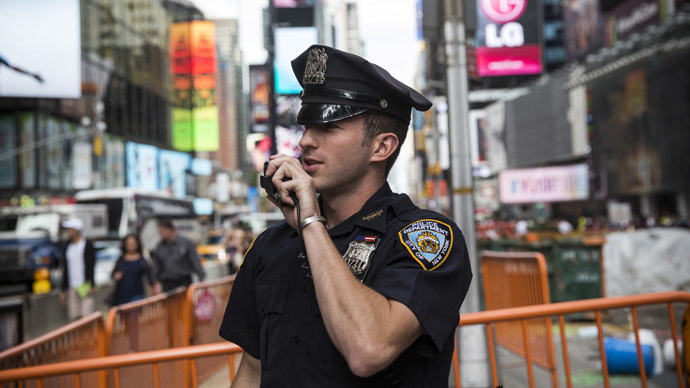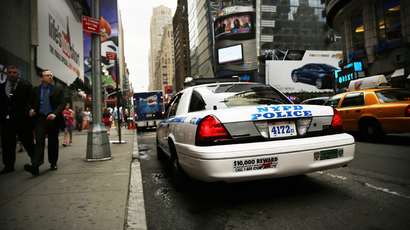NYPD moves to limit public access to local crime information

Each of the 77 New York City police precincts have been ordered to stop providing the media with information about the crimes that take place under their jurisdiction in what is considered by critics as a severe curtailing of the city’s transparency.
A New York Police Department edict issued to precincts throughout the city notified commanders that “any requests by the media to view complaint reports” should “be referred to the office of the Deputy Commission For Public Information (DCPI).” The document was first published Thursday by The Nabe, a New York-based community blog.
“While the Commanding Officer of the precinct, and not a Community Affairs officer, is the person that can help provide information, DCPI is the hub for all media requests and we will gladly facilitate all inquiries through this office,” a DCPI officer told the Nabe.
The DCPI normally updates the media and provides information on major crimes – whether it be murders, sexual assaults, or major theft. But the office has typically left the duty of giving the details around minor crimes to the precinct in that area. One source told DNAinfo, another New York news site, that the “DCPI is a small unit, so I don’t know how they’re going to handle it.”
The announcement comes as Commissioner Kelly prepares to leave office next month, when Mayor-elect Bill de Blasio announced he will be replaced by William Bratton. Over the past 12 years, Kelly has slowly brought the entire public image of the NYPD to rest upon his shoulders. He and former spokesman Paul Browne were generally the only administrators who ever spoke to inquiring reporters.
“This is just another sign of the current NYPD’s hostility to public accountability,” Christopher Dunn, associate legal director of the New York Civil Liberties Union, told DNA Info’s Murray Weiss. “Starting in January, we expect the department to take a dramatically different approach to openness, one that will benefit not only local newspapers, but the press and public in general.”
Gothamist.com was able to reach the DCPI and asked if the office would be expanded to accommodate the oncoming wave of phone calls and media requests.
“I don’t know,” the other line replied. “I’m only a lieutenant.”
According to the 88th Precinct’s Community Affairs officer the changes are due to inconsistency in policy, whereby some precincts currently allow journalists to access forms and others do not. Amid pressure by the media for all precincts to allow access to reports officials decided to simply end all access for journalists.
Whether the new policy will survive under Commissioner Bratton remains to be seen. Bratton, who had served as NYPD commissioner 20 years ago, was touted by De Blasio as a “progressivey visionary” whom he hopes will repair the department’s relationship with minority communities brought on by the controversial stop-and-frisk policy.
During Bratton’s first term as commissioner he was lauded for introducing the use of the data-driven CompStat system, which allowed New York police to track crimes and better allocate resources to high-crime areas. As head of the Los Angeles Police Department during 2002 and 2009, Bratton expanded the use of stop-and-frisk in that city.














